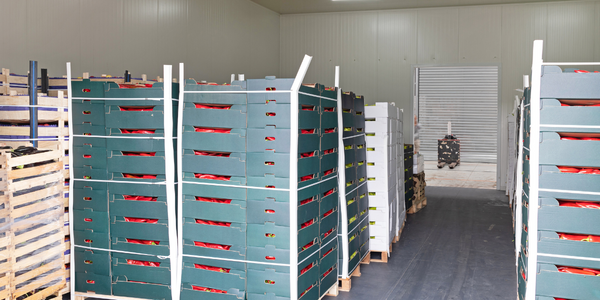NSW Food Authority Orders Information To Go
Company Size
1,000+
Region
- Pacific
Country
- Australia
Product
- OneBlink Platform
- Blink Mobility Platform
- iPad
Tech Stack
- CRM System Integration
- Web Services Communication Infrastructure
- Electronic Forms
Implementation Scale
- Enterprise-wide Deployment
Impact Metrics
- Customer Satisfaction
- Digital Expertise
- Productivity Improvements
Technology Category
- Application Infrastructure & Middleware - Data Exchange & Integration
- Functional Applications - Remote Monitoring & Control Systems
- Platform as a Service (PaaS) - Connectivity Platforms
Applicable Industries
- Food & Beverage
Applicable Functions
- Field Services
- Quality Assurance
Use Cases
- Predictive Maintenance
- Regulatory Compliance Monitoring
- Remote Asset Management
Services
- System Integration
- Training
About The Customer
The New South Wales Food Authority (NSWFA) is a state government agency in Australia responsible for ensuring that food sold within the state is safe, correctly labeled, and that consumers can make informed choices about the food they eat. The Authority serves as a single point of contact for food safety and regulation for industry, local government, and consumers. It regulates and monitors food safety comprehensively, from primary production to point-of-sale. NSWFA deals with over 14,000 licensed food businesses annually, conducts more than 12,000 audits and inspections, and responds to over 2,000 complaints each year. The agency employs a team of 50 field workers who travel across the state to conduct inspections, investigate complaints, and ensure compliance with food regulations.
The Challenge
The New South Wales Food Authority (NSWFA) faced significant inefficiencies in their field operations. With a team of 50 field workers responsible for conducting inspections, investigating complaints, and ensuring compliance with food regulations, the process was cumbersome and involved a lot of duplication. Field staff spent three days a week in the field and two days in the office, sorting through up to 300 forms and checklists per visit. This manual process required printing information before visits and entering data into the system only when back in the office. The need for a more efficient, mobile solution was evident, but the technology to support such a transformation affordably was not available until recently.
The Solution
In 2012, NSWFA's Business Systems Manager, Debbie Brookfield, attended a mobility conference where she learned about the OneBlink field access solution. This revelation led to the development of a business case and a formal procurement process for a field access solution. NSWFA selected a solution based on the OneBlink platform, with back-end development and implementation services from Rype, a business mobility and cloud specialist. The solution included a total managed service covering iPad handheld devices, help desk support, warranties, and monthly management reports. The pilot project focused on inspections, using the Blink Mobility Platform to create highly customized electronic forms for data capture. Rype developed interfaces and an adapter to connect the forms with NSWFA's existing CRM system. Training was provided to all officers, and the pilot was rolled out for testing in late 2012. The solution allowed field staff to access records, retrieve new inspection forms, fill in data, and upload completed forms to the CRM system without returning to the office. The iPads also enabled staff to take and upload photos to accompany reports and review past inspections.
Operational Impact
Quantitative Benefit

Case Study missing?
Start adding your own!
Register with your work email and create a new case study profile for your business.
Related Case Studies.

Case Study
The Kellogg Company
Kellogg keeps a close eye on its trade spend, analyzing large volumes of data and running complex simulations to predict which promotional activities will be the most effective. Kellogg needed to decrease the trade spend but its traditional relational database on premises could not keep up with the pace of demand.

Case Study
HEINEKEN Uses the Cloud to Reach 10.5 Million Consumers
For 2012 campaign, the Bond promotion, it planned to launch the campaign at the same time everywhere on the planet. That created unprecedented challenges for HEINEKEN—nowhere more so than in its technology operation. The primary digital content for the campaign was a 100-megabyte movie that had to play flawlessly for millions of viewers worldwide. After all, Bond never fails. No one was going to tolerate a technology failure that might bruise his brand.Previously, HEINEKEN had supported digital media at its outsourced datacenter. But that datacenter lacked the computing resources HEINEKEN needed, and building them—especially to support peak traffic that would total millions of simultaneous hits—would have been both time-consuming and expensive. Nor would it have provided the geographic reach that HEINEKEN needed to minimize latency worldwide.

Case Study
Energy Management System at Sugar Industry
The company wanted to use the information from the system to claim under the renewable energy certificate scheme. The benefit to the company under the renewable energy certificates is Rs 75 million a year. To enable the above, an end-to-end solution for load monitoring, consumption monitoring, online data monitoring, automatic meter data acquisition which can be exported to SAP and other applications is required.

Case Study
Coca Cola Swaziland Conco Case Study
Coco Cola Swaziland, South Africa would like to find a solution that would enable the following results: - Reduce energy consumption by 20% in one year. - Formulate a series of strategic initiatives that would enlist the commitment of corporate management and create employee awareness while helping meet departmental targets and investing in tools that assist with energy management. - Formulate a series of tactical initiatives that would optimize energy usage on the shop floor. These would include charging forklifts and running cold rooms only during off-peak periods, running the dust extractors only during working hours and basing lights and air-conditioning on someone’s presence. - Increase visibility into the factory and other processes. - Enable limited, non-intrusive control functions for certain processes.

Case Study
Temperature Monitoring for Restaurant Food Storage
When it came to implementing a solution, Mr. Nesbitt had an idea of what functionality that he wanted. Although not mandated by Health Canada, Mr. Nesbitt wanted to ensure quality control issues met the highest possible standards as part of his commitment to top-of-class food services. This wish list included an easy-to use temperature-monitoring system that could provide a visible display of the temperatures of all of his refrigerators and freezers, including historical information so that he could review the performance of his equipment. It also had to provide alert notification (but email alerts and SMS text message alerts) to alert key staff in the event that a cooling system was exceeding pre-set warning limits.

Case Study
Coca-Cola Refreshments, U.S.
Coca-Cola Refreshments owns and manages Coca-Cola branded refrigerators in retail establishments. Legacy systems were used to locate equipment information by logging onto multiple servers which took up to 8 hours to update information on 30-40 units. The company had no overall visibility into equipment status or maintenance history.


